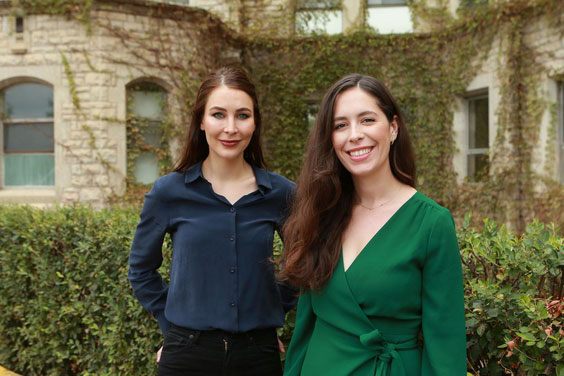
Two new geriatricians hired in Saskatoon
Their hiring brings the total number of geriatricians in Saskatchewan to four — the highest in the province's history — and brings the U of S medical school closer to being able to offer its own geriatric fellowship program.
By Andrea Hill | Saskatoon StarPhoenixWhen Dr. Haissam Haddad asked the Saskatchewan Ministry of Health to hire not one, but two geriatricians, the approval came almost immediately.
“It’s a significant amount of money, but the ministry recognized the importance of having geriatricians,” recalls Haddad, the head of the department of medicine for the University of Saskatchewan’s College of Medicine.
“It was a matter of hours or overnight when I received that positive news.”
The Ministry of Health signed contracts with two geriatricians this summer. Dr. Krista Lagimodiere (MD'15) and Dr. Megan Surkan (MD'15) both completed fellowships outside the province in June and began working in Saskatoon earlier this month. They expect to work part time until the end of September and then transition to full time.
Their hiring brings the total number of geriatricians in Saskatchewan to four — the highest in the province’s history — and brings the U of S medical school closer to being able to offer its own geriatric fellowship program.
Geriatricians are specialized medical doctors who are experts in treating elderly patients, who can present with a myriad of issues. Training involves going through medical school, then completing a three-year residency program in internal medicine followed by a two-year fellowship in geriatric medicine.
Surkan, who completed medical school and her internal medicine residency at the U of S, said geriatricians do comprehensive geriatric assessments and create plans to support the unique — and often complex — needs of elderly patients, which could lead to better health outcomes.
“We’re preventing people from declining and needing personal care homes or long term care,” she said.
“It’s good for patients. Ultimately, patients want to be able to walk, they want to be able to be independent, they want to age in place. There’s things we can do on an in-patient level that can prevent a decline.”
Like Surkan, Lagimodiere completed medical school and an internal medicine residency at the U of S. She decided to specialize in geriatrics during her internal medicine residency after her grandmother became ill, which made her realize the importance of having physicians who specialize in treating elderly patients, she said.
“It’s really rewarding to meet someone, really understand who they are as a person and sort through a number of complex medical issues, frailty, psychosocial factors, to come up with a really nice person-centred management plan with the ultimate goal to make people feel better and improve their function and focus on what matters most to them,” Lagimodiere said.
Read the full article at https://thestarphoenix.com/.

